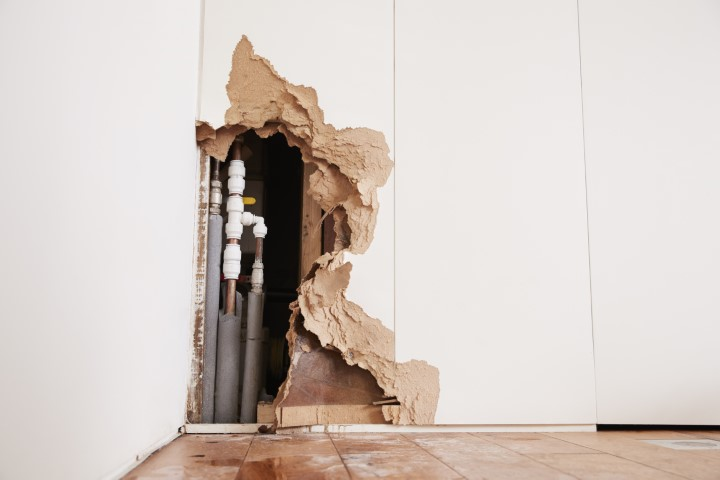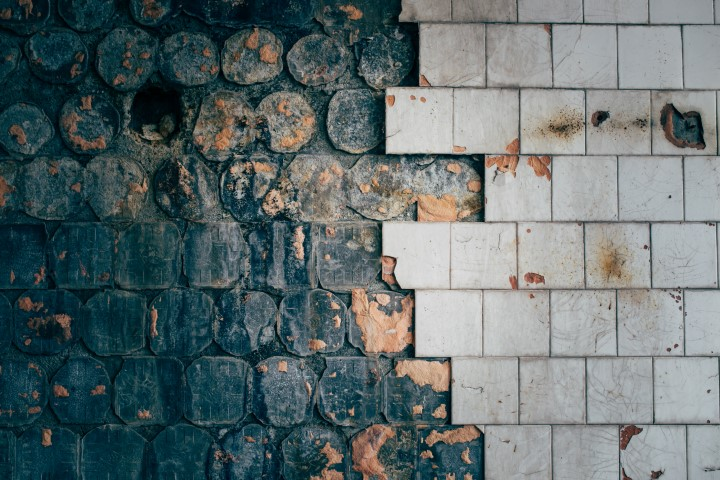Your building is talking to you—but are you listening?
It’s easy to ignore the little things: a faint musty odor, a small crack creeping up the wall, or a floorboard that suddenly feels a little…off. But in the world of property damage, those “little things” are often the early warning signs of bigger, more costly problems. Hidden signs of property damage are often overlooked until it’s too late—and by then, the repairs can be costly, disruptive, and even dangerous.
At American Restoration Contractors (ARC) in Lakeland, FL, we’ve seen firsthand how catching these subtle signals early can prevent major issues down the line. So before you dismiss that weird smell or minor stain, here’s what your building might be trying to tell you.
Cracks That Whisper: What That Line in the Drywall Really Means
Not all cracks are created equal. While some minor hairline cracks can be the result of natural settling, others might be signaling moisture intrusion, structural shifting, or even hidden mold. Pay special attention to cracks around doors and windows or ones that appear suddenly and begin widening. Your walls may be trying to say, “Hey, something’s moving—or growing—behind me.”
Also, don’t forget ceilings. Cracks running across ceilings, especially if paired with discoloration or bulging, could indicate water accumulating from a leak above. These areas should never be ignored, as they often signal damage that’s worsening out of sight.
The Silent Drip: When Your Baseboards Know Before You Do
Water loves to sneak in quietly—especially in places like behind appliances, under sinks, or near exterior walls after a storm. If you notice your baseboards warping, separating from the wall, or developing soft spots, don’t ignore it. Even small amounts of trapped water can lead to mold growth, wood rot, and structural weakness if left untreated.
Sometimes, the only giveaway is a subtle darkening or softness when you press lightly against the wall or trim. Catching that early means you’re stopping damage before it spreads into framing or insulation layers—saving time, money, and materials during repairs.

A Musty Mood: How Smells Can Signal Serious Mold Issues
If your building smells like it’s been locked in a damp closet, that’s your first clue. Musty odors often come from mold hiding behind walls, under carpets, or inside HVAC ducts. Even if you can’t see it, your nose knows. Mold doesn’t just damage your property—it can also cause serious health risks, especially for those with allergies or respiratory issues.
Air quality is often the first thing to suffer when mold is present. If your employees or tenants are complaining of frequent coughing, headaches, or fatigue while inside the building, it’s time to investigate further. Hidden mold can spread quickly in humid environments like Florida, especially after storm-related leaks.
Floors That Flex: What Squeaks, Dips, and Sags Might Be Telling You
Your flooring system is supposed to be solid and level. So when it starts to squeak excessively, feel spongy, or develop low spots, it’s a red flag. This could point to subfloor water damage, compromised support beams, or shifting from long-term moisture exposure.
Changes in flooring behavior are often overlooked, especially in busy commercial spaces where foot traffic is constant. But a sagging corner or warped tile is usually your building’s way of waving a flag for help. When caught early, the fix might be minor. If ignored? It could lead to full floor replacements and compromised structural support.
Your AC is Gasping for Help: When HVAC Problems Hint at Water or Mold
A struggling HVAC unit might be more than a mechanical issue. Leaky ductwork, condensation buildup, and poor airflow can all be signs of hidden water damage or mold growth in the system. Mold can spread rapidly through ventilation, affecting your entire building—especially in Florida’s humid climate.
Unusual humidity levels, inconsistent temperatures, or a sour smell coming from vents are clues that something deeper is going on. Your HVAC system doesn’t just keep people cool—it can also quietly circulate mold spores or push moisture into hidden corners if it’s not functioning properly.
Don’t Wait for the Shout—Act on the Whisper
By the time your building is screaming for help (think collapsing ceilings or black mold creeping up the walls), the damage has already been done. Listening to the whispers—those small, subtle signs—can save you thousands of dollars and weeks (or months) of disruption.
Treat every sign as a conversation starter. Your property wants to stay safe, dry, and strong—but it needs you to pay attention to the early warnings.

Your Property Is Talking. ARC Is Here to Help.
If any of these signs sound familiar, it’s time to bring in the experts. At American Restoration Contractors, we specialize in:
Serving Lakeland, FL, and surrounding areas, our team is available 24/7 to respond to emergencies and assess the unseen threats that could be growing behind your walls, under your floors, or inside your systems.
ARC listens to your property—even when the problems are silent. Let us help you detect, resolve, and restore before the whispers turn into costly consequences.


